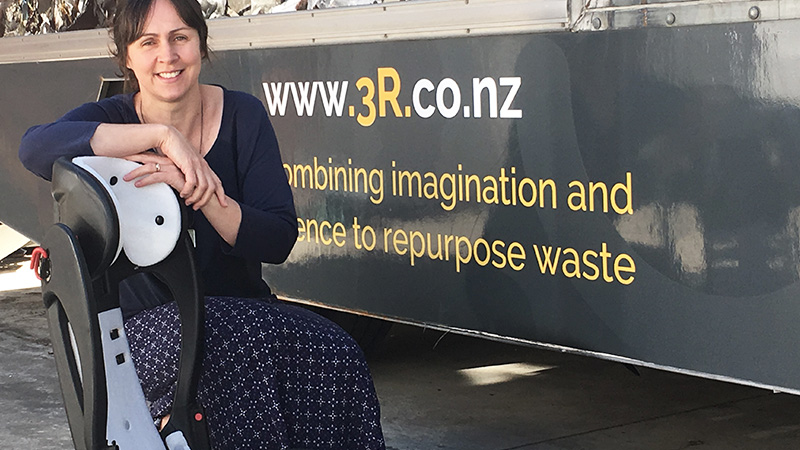Child car seat recycling a sign of the times
Just a few years ago there weren’t many people who would think it was possible to recycle a child car seat, much less have an option to actually do so.
However, since the trial and official launch of the SeatSmart child car seat recycling programme over 8,000 seats have been diverted from landfill.
The programme may seem rather niche in the greater recycling landscape but it’s a sign of things to come, when the majority of items coming into the household will have a pathway for reuse, repurposing or recycling. The increase in volume through SeatSmart over the last year is also an example of the dramatic change in how the public is starting to think and act in more sustainable ways.
SeatSmart began after a 3R Group staff member tried to responsibly dispose of an expired baby capsule. When told that landfill was the only option, 3R decided to see if they could change that.
3R conducted research which found that most seats have a lifespan of 6 to 10 years, and that each year a minimum of 40,000 seats go to landfill, this despite around 90 per cent of the materials being recyclable. With this in mind 3R put together an initial 18-month-long industry-wide project and trial which resulted in SeatSmart officially being launched on 1 April 2016 in Auckland, Hamilton, Hastings, Tauranga and Nelson.
The programme collected just over 1700 seats in the first year after launch. A surge in the number of collection sites around the country, as well as an increase in seats collected at existing sites, saw the number for the second year top 3000.
New collection sites, driven largely by local council support and matched by public demand, opened over the past year in the Wellington, Manawatu-Whanganui, Canterbury and Otago regions – 16 sites in all. In total the programme boasts 34 sites in 9 regions, with strong public support for more.
Programme manager Toni Bye says SeatSmart is a great example of how the public is starting to embrace the change from a ‘take, make, waste’ linear economy to a circular model where nothing is wasted. “It’s good to see the growing movement away from plastic bags, straws and other single use plastics but we’d also encourage people to look beyond the small items to some of the larger items in our homes. Car seats, mattresses, electrical items – none of these things need go to landfill, we just need to change how we look at things, to see them as a useful resource, not rubbish.”
Currently the programme operates on a user-pays model with a $10 (RRP) recycling fee, although this is lower at some sites where there is additional council support. “We are really pleased with the support we’ve received from councils to date,” Toni says.
“The programme’s dual aims of minimising waste to landfill, combined with raising awareness of expiry dates on car seats to improve road safety, aligns with many councils’ goals. We’re also grateful to retailer Baby on the Move who provides around 30% of our collection site network.”
The disassembly of the seats is carried out by offenders in Department of Corrections community work programmes. While most community work is done outdoors, SeatSmart provides a steady source of indoor work which also teaches new skills.
The majority of materials by weight are metal and plastic which are recycled, while the straps and tethers are used to make recycled bags. Seat fabrics and a small amount of plastic which currently have no market are not reused or recycled, but work continues to change this.
3R continues to pursue a product stewardship model where manufacturers and retailers incorporate the cost of end-of-life recovery into the purchase price of the car seat. This would fund recycling and repurposing of materials and also encourages design and material choices that maximise the life and end use options for car seats.







